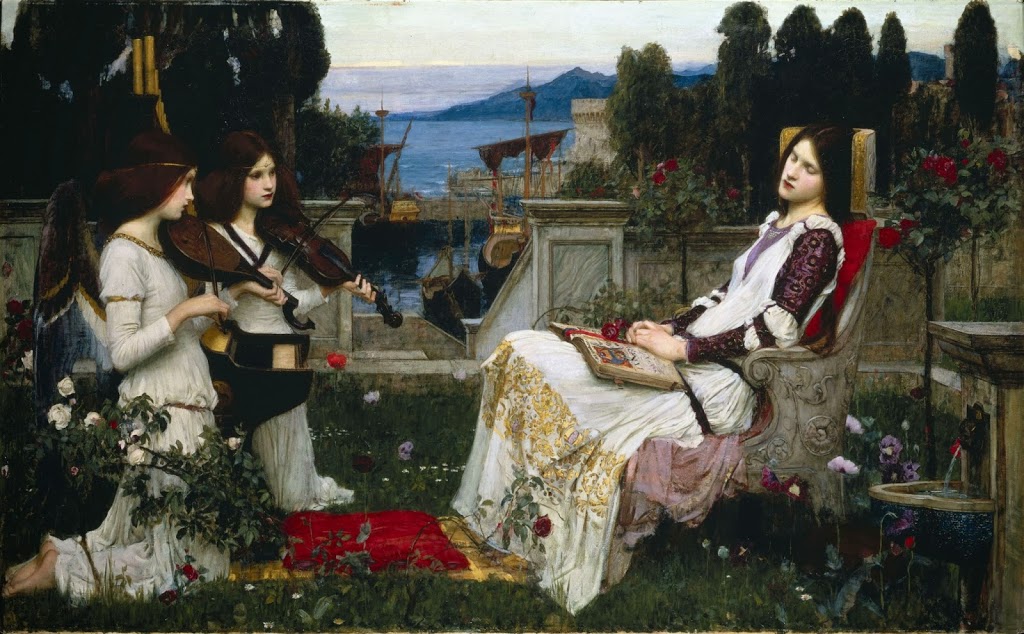I had never heard Palestrina’s music before, and I bought a record and put it on, and I almost had a mystical experience. I said, this is the music of angels. This doesn’t come from earth; this comes from heaven. This is a different kind of music, just as a cathedral is a different kind of church. And I said, what horrible heresy called the Whore of Babylon possibly could produce music that heavenly? It was a kind of argument that couldn’t be answered. (Dr. Peter Kreeft on his Conversion to the Catholic Faith, emphasis added)
[featured-image single_newwindow=”false”]
After listening to Palestrina, Peter Kreeft realized the power of sacred music and it propelled him further into the arms of the Catholic Church. This little episode reveals to us that there is something about sacred music that speaks to the soul and stirs within us a deeper longing for Heaven. Sacred music is very powerful and speaks to anyone who has ears to hear.
Suffice to say, there is no sacred music in Hell.
Music has been a vital part of society for thousands of years. For example, “Plato based his whole ‘ideal’ society, in The Republic, on its educational system, and he based the whole educational system on music as its first step” (The Snakebite Letters, 61, emphasis added). Plato esteemed music so much that he said a society would erode “first through a decay in music” (Ibid.).
The reason why music is able influence society so much is on account of its ability to bypass reason. As humans, we “don’t think about it, [we] just feel it” (Ibid, 62). The most powerful music goes even further, through our feelings and into the “deep center of the soul.” (Ibid).
Many throughout the centuries have converted to Christianity through music; more specifically “sacred music,” the music of the Church. There is even a tradition that God created the world through music, which Tolkien eloquently portrayed in his fictional tale The Silmarillion. Similarly, music is thought to be the “language of Heaven” (Ibid).
This is why the devil hates sacred music so much. It reaches the depths of our soul and raises us up to the Heaven. It should be no surprise to us when a parish’s sacred music program is single-handedly dismantled. He will do all he can to prevent us from hearing the Divine Voice of God.
A Light in the Darkness
Not surprisingly, the past few years has seen an increased interest in sacred music. Our souls long for it and when our soul is not being fed, it will search for one of two places: the garbage heap or the heavenly banquet. Thankfully many in our Church as well as in society are searching for the Song of Songs at the Wedding Feast of the Lamb.
One example of this is the religious community of nuns called the Benedictines of Mary, Queen of Apostles. For two consecutive years, they have been the number 1 bestselling Billboard Classical Traditional artist. Additionally, the beauty of their sacred music has attracted the talents of 11-time Grammy Award-winning producer Christopher Alder, who has assisted them in producing several albums.
Their music and community has been featured on NPR, USA Today, People Magazine and The Washington Times. This is fascinating as their music features “English and Latin pieces sung a cappella on the feasts of the holy Saints and angels” as well as during other liturgical seasons.
Based on the fads in music today, their music shouldn’t be popular. Yet, it is!
This community is about to release another album Easter at Ephesus, which I am sure will reach the top of every list out there.
Their music is continuing an ancient tradition of sacred music that we all long for and it raises our hearts to heavenly places. Their music is a light in the darkness and the success they are having gives us hope for society. If society crumbles first through music, then most assuredly it will rise from the ashes through music.
De Montfort Music
Easter at Ephesus by the Benedictines of Mary, Queen of Apostles

